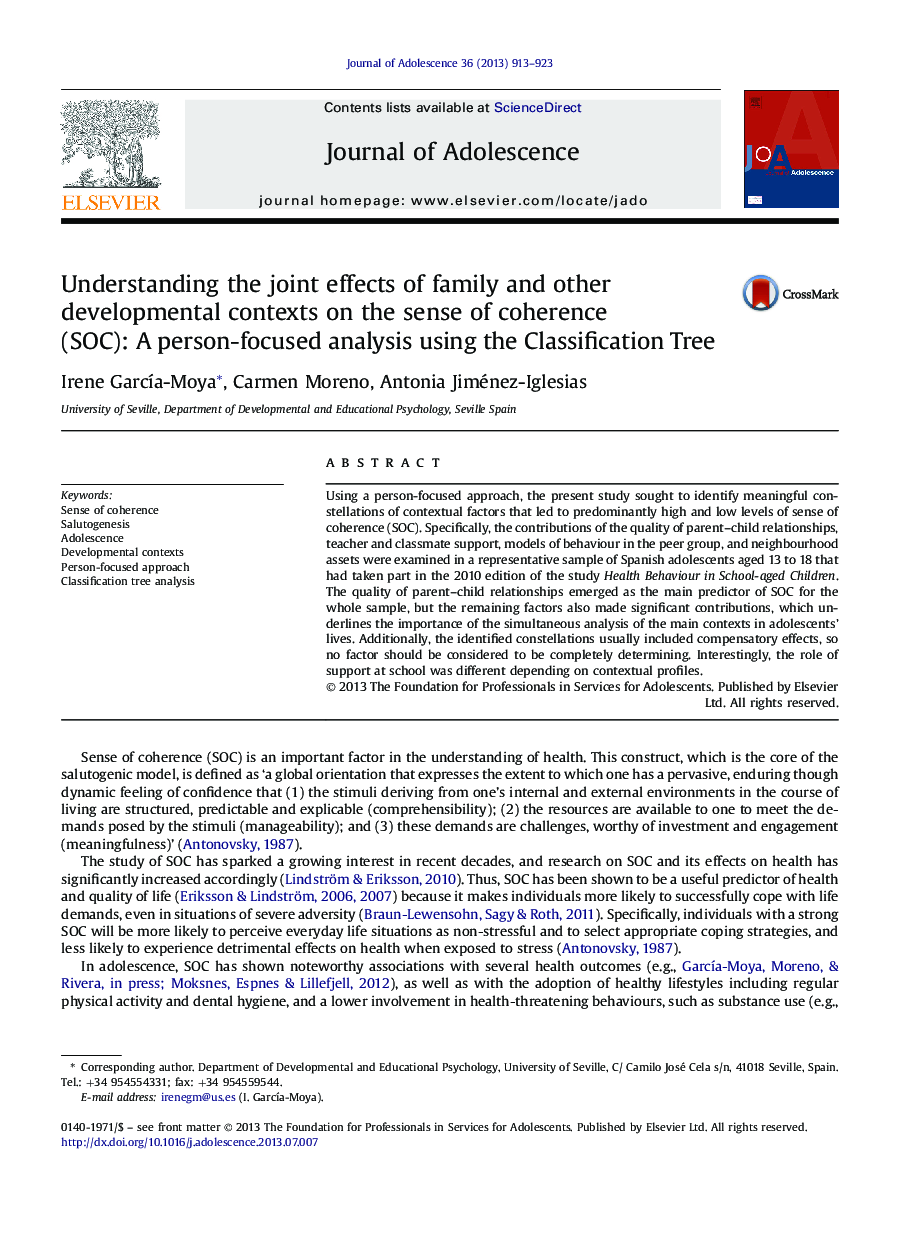| Article ID | Journal | Published Year | Pages | File Type |
|---|---|---|---|---|
| 880924 | Journal of Adolescence | 2013 | 11 Pages |
Using a person-focused approach, the present study sought to identify meaningful constellations of contextual factors that led to predominantly high and low levels of sense of coherence (SOC). Specifically, the contributions of the quality of parent–child relationships, teacher and classmate support, models of behaviour in the peer group, and neighbourhood assets were examined in a representative sample of Spanish adolescents aged 13 to 18 that had taken part in the 2010 edition of the study Health Behaviour in School-aged Children. The quality of parent–child relationships emerged as the main predictor of SOC for the whole sample, but the remaining factors also made significant contributions, which underlines the importance of the simultaneous analysis of the main contexts in adolescents' lives. Additionally, the identified constellations usually included compensatory effects, so no factor should be considered to be completely determining. Interestingly, the role of support at school was different depending on contextual profiles.
